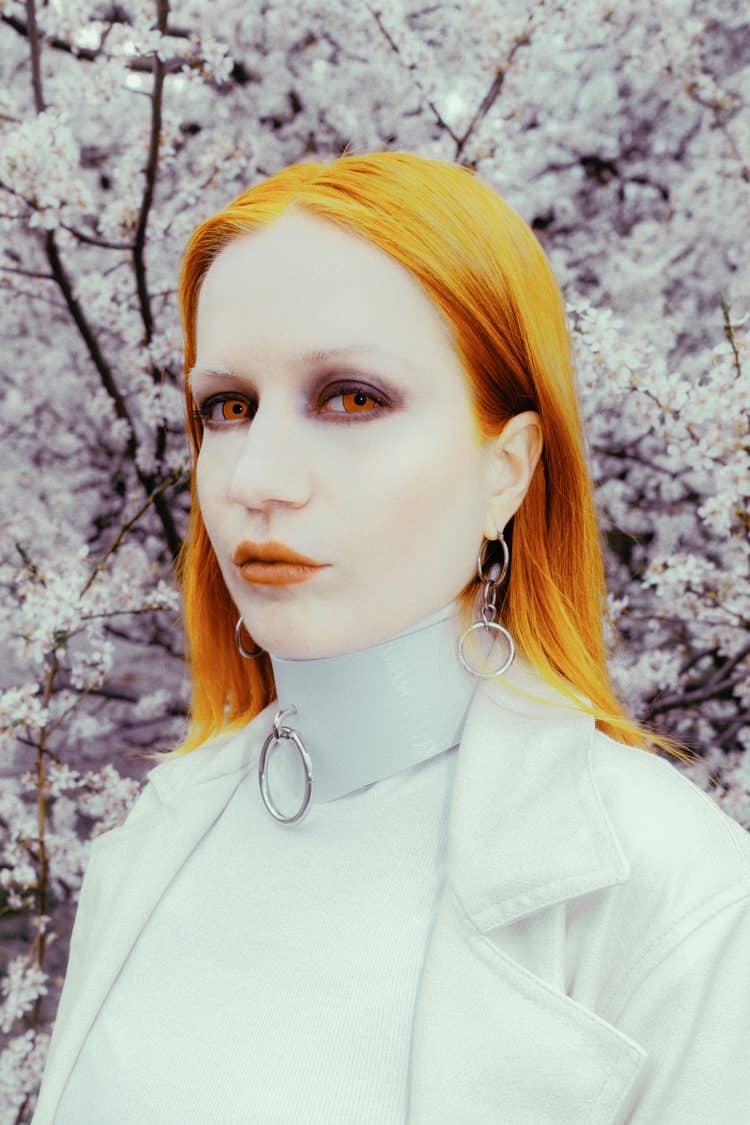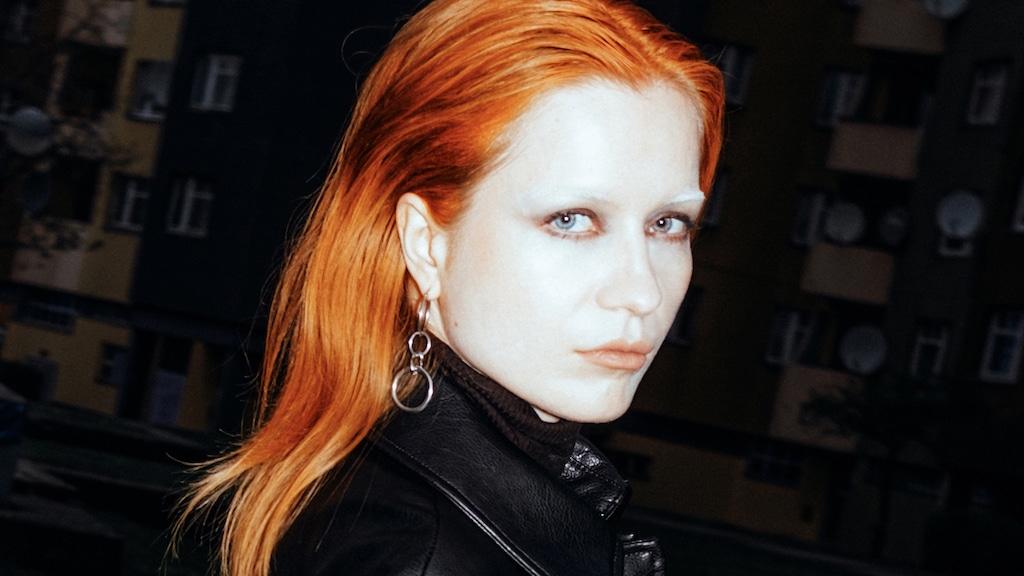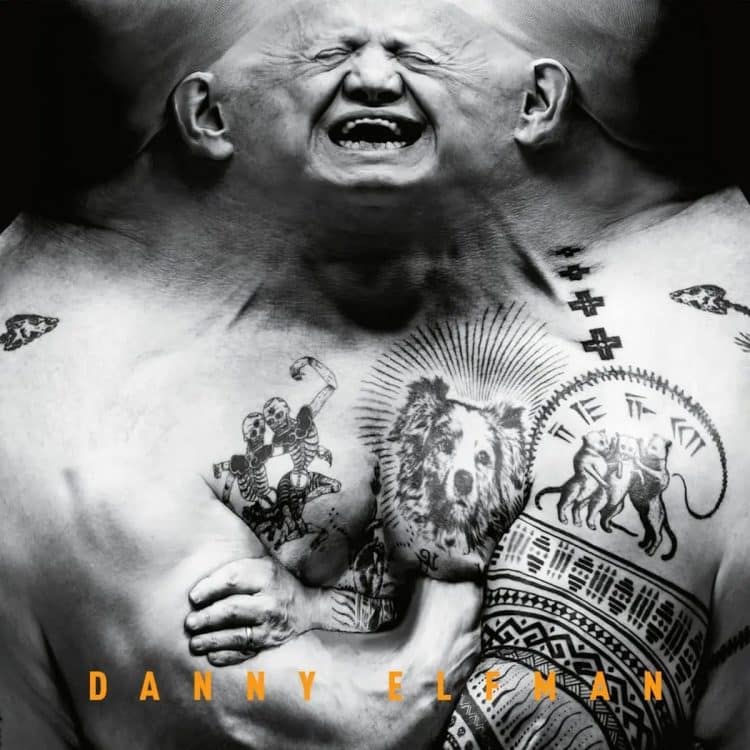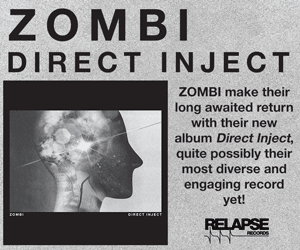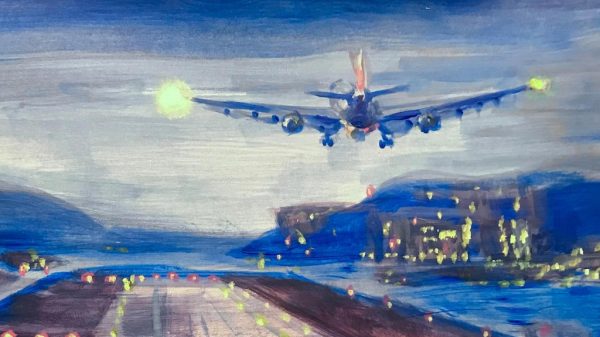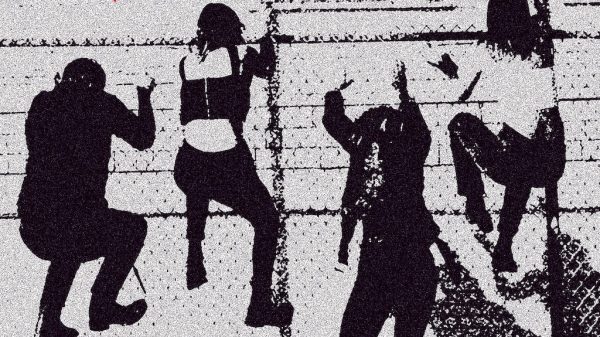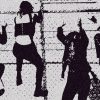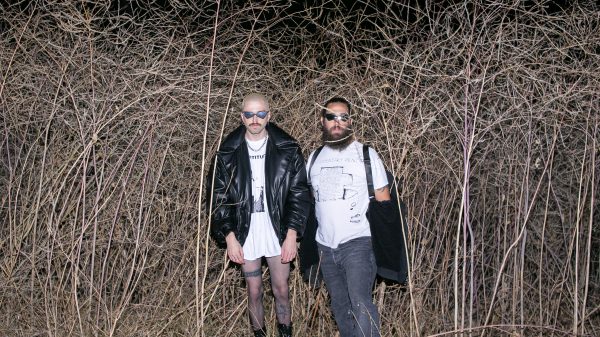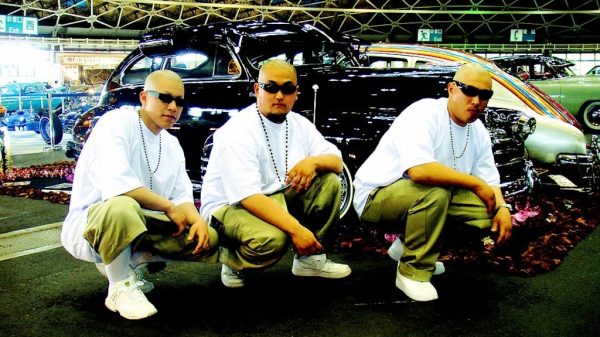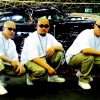Today I’m excited to share the interview we did with BERIT GILMA, the creative director behind Danny Elfman’s Big Mess and the remix album Bigger.Messier.. Gilma is a fascinating person who brings a wealth of underground experience and appreciation to her work on Elfman’s albums and music videos. Born in Austria and based in Berlin, her expertise in digital art and new technologies mixes with her subversive, counterculture ideas in her work.
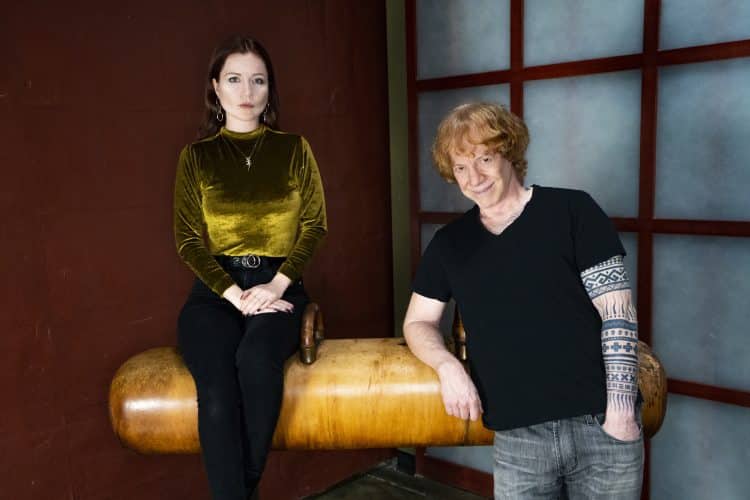
Growing up, what music did you hear around your home and your neighborhood?
Every Sunday morning, my dad used to play either Jimi Hendrix or Arabic music really loud to wake everyone up. I definitely got heavily influenced by him—at age 15 he introduced me to glam rock, which became a significant influence on me. I was first acquainted with Björk, Einstürzende Neubauten, and Norwegian Black Metal through my older siblings. In my late teens, I began working for a small noise music label and an electronic music festival in my hometown, where I eventually became very absorbed in electronic music. I also developed a sweet spot for 80s post-punk, synth-pop, and darkwave music.
How did you get involved in Berlin’s underground music/arts/tech scene?
In my early twenties, I relocated to Berlin and quickly became involved in the city’s music and art subcultures. I was dating a guy who was a hacktivist and lived in exile in Berlin. We solely communicated over encrypted channels. Around that time, I was navigating some very political terrain and became interested in the hacktivist scene, whistleblowing, and investigative journalism. But I always looked at these fields with an artistic lens. Parallel to that, I immersed myself in Berlin’s fantastic nightlife, which is dominated by techno and, of course, the notorious club Berghain…
What life experiences helped shape the way you see the world?
I grew up quite isolated in a waterplant nursery, so I was surrounded by water lilies and amphibians. It’s my mother’s business. I know it appears unrelated to my current work, up there was incredibly formative; it affected the way I view the forms, colors, patterns, and details in the world around me. My 7 years spent in Berlin in the aforementioned scenes before helped me to form my critical thinking and engage with challenging domains like new technologies.
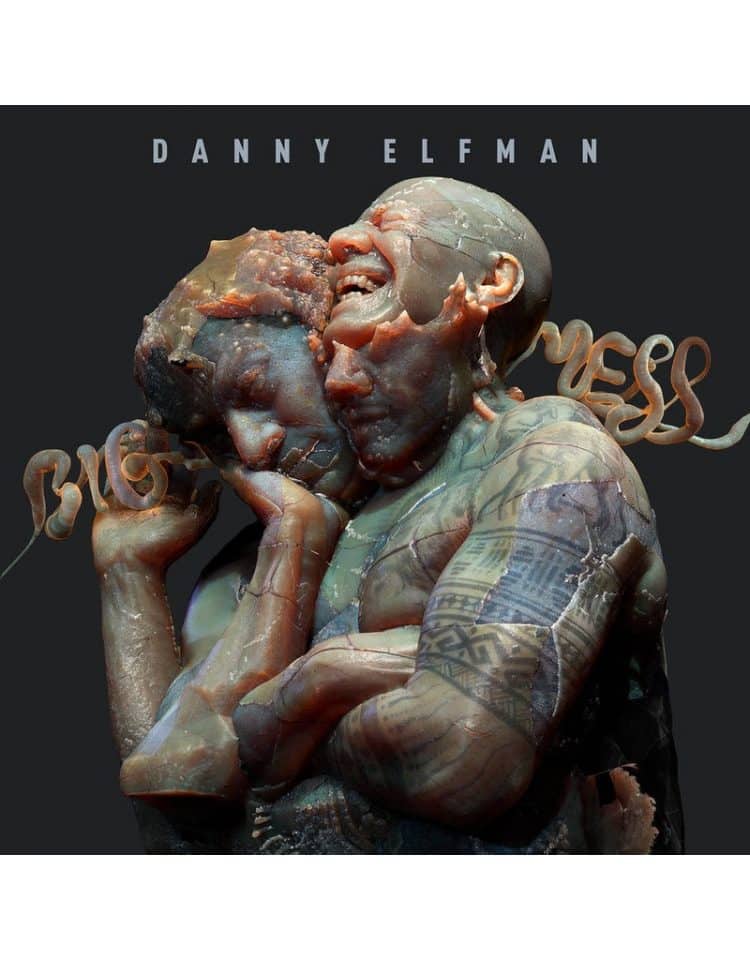
Your bio mentions your involvement with activist art movements in Berlin, and you also studied with Chinese dissident artist Ai Weiwei. How does your artistic background and worldview shape the way you approach creative direction?
My parents are the 1968 generation and quite alternative. There was a time in my life when I participated in political activism. This later appeared in the art I was interested in. I count myself blessed to have studied under and worked alongside Ai Weiwei, who eventually became a sort of mentor along my journey. Even though I now work in Hollywood, I never lost sight of who I am or where I came from.
I value authenticity very strongly. Quality of art is priority. And I wouldn’t want to work for somebody whose artistic essence I don’t completely admire.
I’m not interested in the mainstream; I need a shimmer of underground, an edge, something that challenges the mind or the eye. Hollywood is actually a great place for that because its cultural and artistic spectrum is so wide.
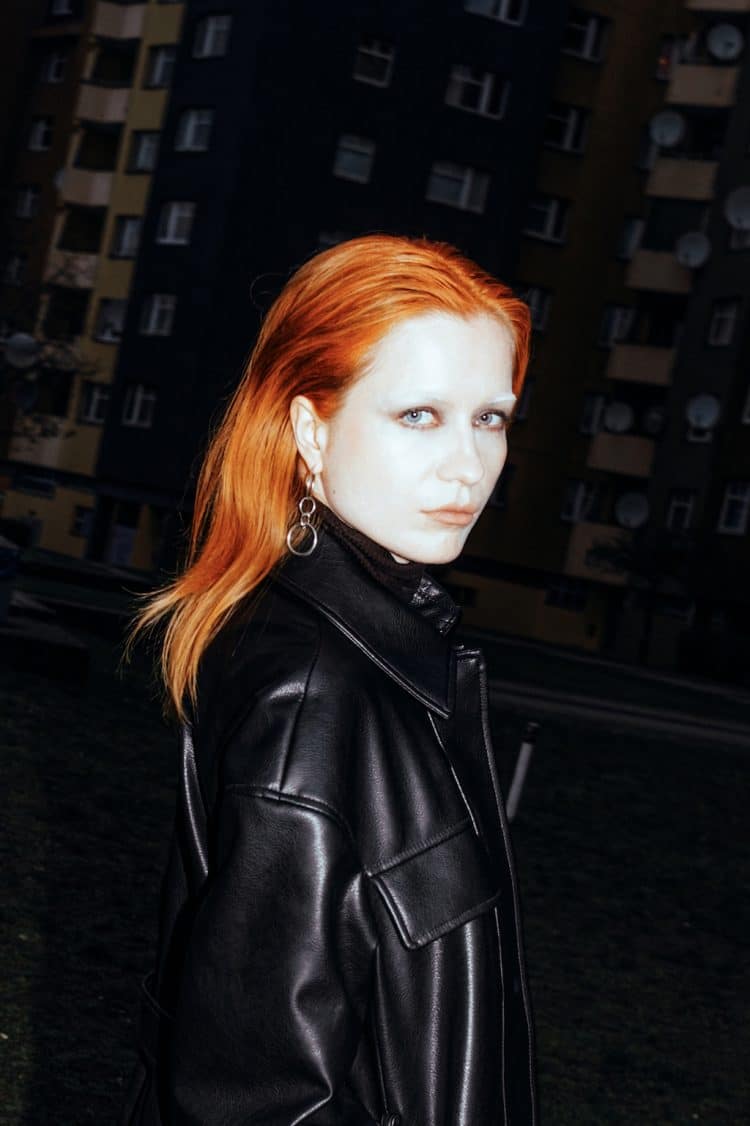
How did you get involved with Danny Elfman’s 2021 album Big Mess and the 2022 remixes Bigger. Messier.?
Danny and I have been friends for a while. In 2018, I attempted to produce a show with him for a festival in Australia called Dark Mofo. Although the show never happened, it later served as the main inspiration to write his own music in almost four decades.
I moved to LA in 2019 to pursue my MFA degree with a Fulbright scholarship. Shortly after, the pandemic happened, and I had to escape LA and his Coachella show (where he was supposed to be one of the headliners) got canceled. Due to the unusual constellation of the pandemic, time (which Danny never has as he is extremely busy), and indignation over living under Trump, he gave birth to some songs (the first ones of his own since his Oingo Boingo days) and that was the genesis of Big Mess. He asked me to be his Creative Director. After that, the project became bigger and bigger, and here we are…2 1/2 years later, having produced the original double LP, 12 music videos, a sophisticated deluxe box set, and a remix album that I co-curated and co-produced with contributions from artists like Iggy Pop, Trent Reznor, Ghostemane, and Blixa Bargeld (and many more).
Can you share a bit about your process of creative directing the albums?
I definitely experienced it as a complex undertaking—especially given Danny’s level and scope of operations. I wore many hats for the project. I was trying to think of it as a conceptual work, where music and visual art go hand-in-hand with the challenge that the music industry is facing at the moment and the role of the digital world. And, of course, the pandemic. I took the lead with all visual elements and brought directors on board for the music videos and thought about strategies for the roll out campaign. Because I have a background in fine digital arts, my mind always wandered to odd digital things we could do…like 3D scanning Danny and animating him, or working with artificial intelligence for some of the videos. He was up for it all, amazingly.
If you could pick one song from Bigger. Messier. to listen to for the rest of your life, which one would it be and why?
I do like a lot of songs on there, especially because it’s very genre-defying…but I do have a favorite song: the vocal feature of Blixa Bargeld on the song “In Time.” I could literally listen to this the rest of my life.
What was your favorite artistic contribution to these two Danny Elfman albums?
Oh, that’s hard to say. All the artists and musicians I brought on board are incredibly gifted and I admire every single one of them. I really can’t pick favorites.
Are you an Anime fan? If so, who are some of your favorite characters?
Not so much actually. (Ugh please don’t hate me!)
Outside of working as a creative director, what other ways do you express yourself artistically?
I write to process my thoughts, and I create art myself to meditate around topics of interest.
What are “the aesthetics of secrecy”?
This is actually the title of a book I wrote and I haven’t published it yet. It’s about the topics and scene I mentioned before — navigating a highly political sphere in Berlin, but from an artist’s perspective. It talks about political implications and meta-meanings in classified data and the visual language of the secret service.
What role does technology play in your creative direction? Do you see technology as a way to enhance human expression, but also limit it in that it takes us away from ourselves and our community?
I love this question! First of all, I would like to refer to something that James Bridle once said, it’s along the lines of: every technological invention followed a social demand. A lot of things get invented all the time, but only certain ones are successful as they fulfill a certain need in society. Artistic intervention can be very valuable to understand new technologies, their use, but also their power. Their potential to oppress and surveil.
Nowadays, I share a fascination with a lot of new media artist colleagues that explore a new aesthetic, a new way of image creation through things like neural networks. I think we have a paradigm shift happening. It’s an interesting moment in time. Speaking in these terms, I appreciate this change happening fuelled by new technologies. But it’s never as easy with them, right? I think we should be open to doing art with them, explore, and be critical. I turn away when it gets too much of a spectacle and trend. I then remember that nature is much more interesting and various forms of unexplored intelligence exist there as well. Artificial intelligence is very human-centered, while we probably should try to understand our existence better in context of the planet and other living forms.
